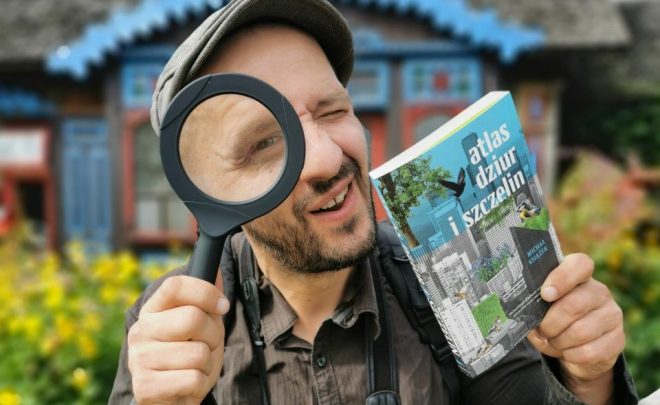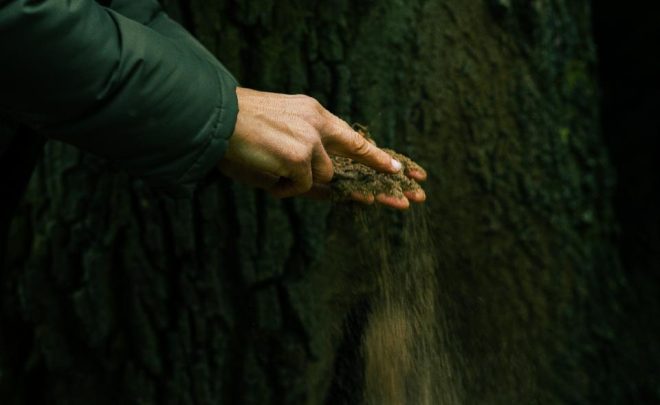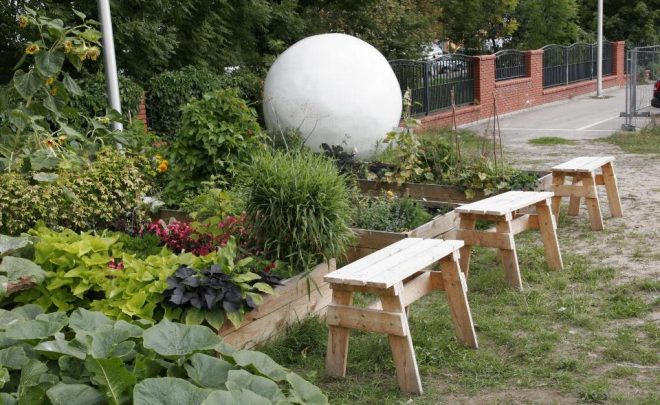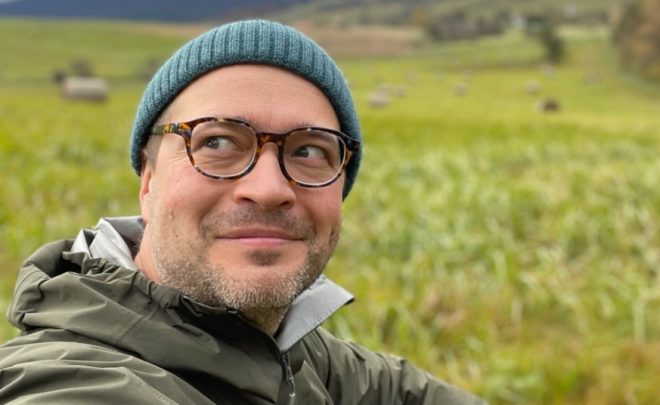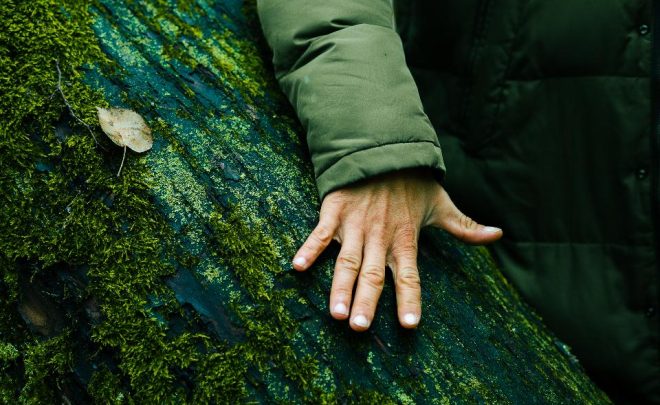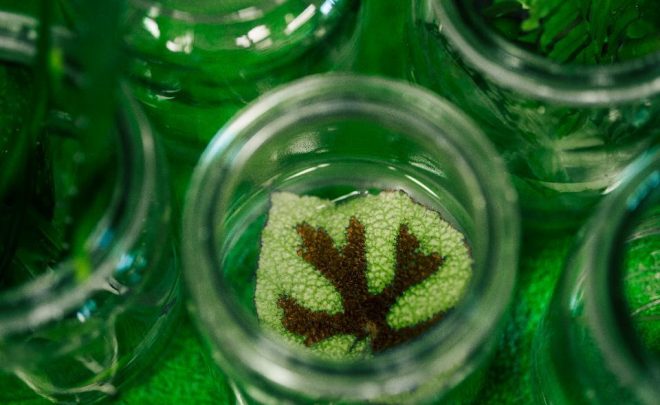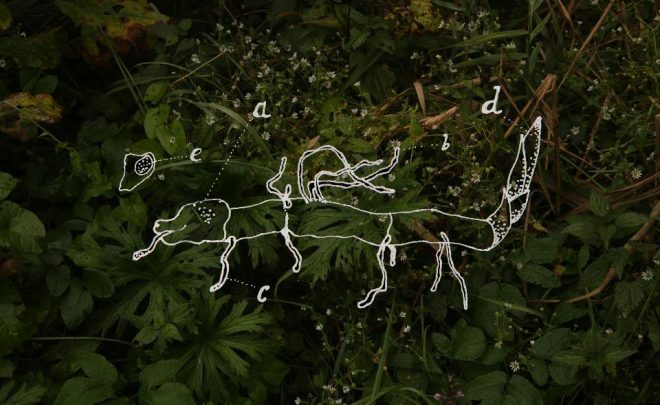Neighborhood of Nature in Białystok: “Cyklarium Słoboda” at the Białystok University of Technology
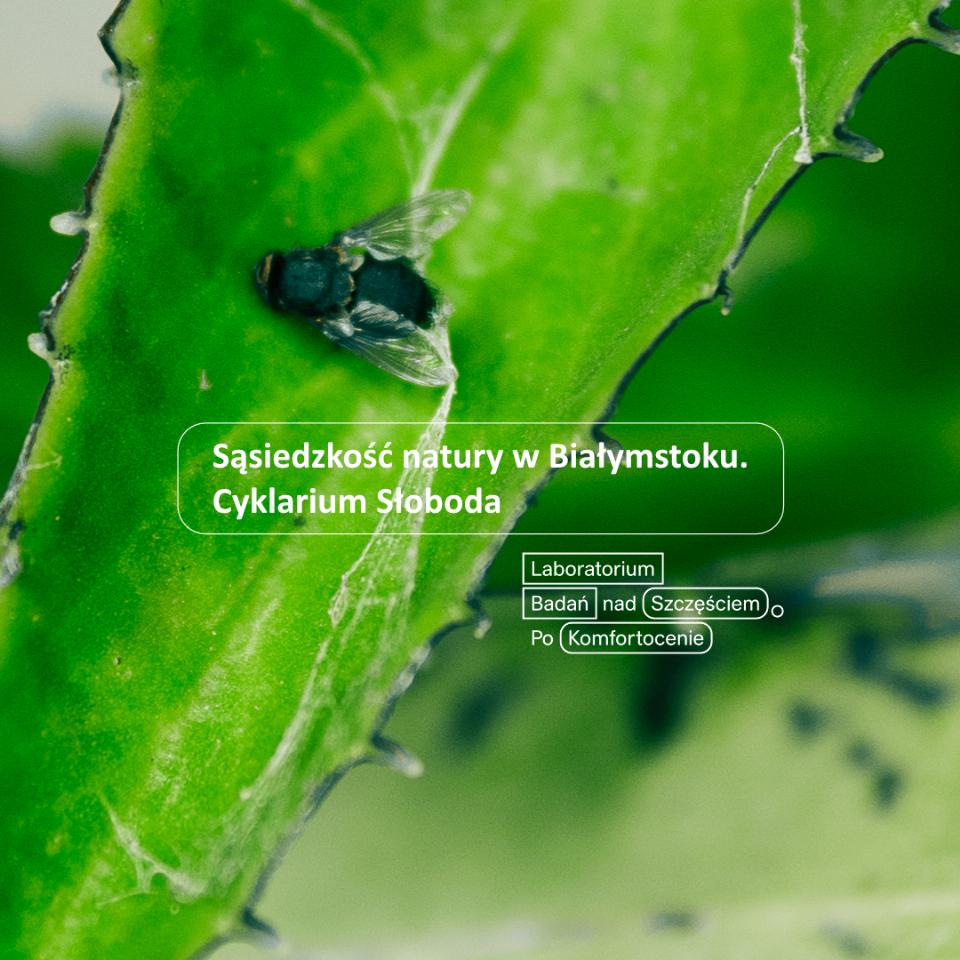
Neighborhood of Nature in Białystok: “Cyklarium Słoboda” at the Białystok University of Technology
Project: Happiness Research Laboratory
The project in Białystok aims to create “Cyklarium Słoboda,” a respite, rest, and meeting zone in the informal green areas of the Białystok University of Technology campus. Named to commemorate the village that once existed there, this space will promote coexistence among various species—fauna, flora, and humans. The multifunctional space will be organized in a modular system, integrating existing natural conditions with architectural design. It will feature a biocenotic garden with components such as a soil garden, composter, rainwater tank, and rest areas with small architectural forms. This area will serve as a research site for scientific groups focused on environmental management while remaining publicly accessible to raise ecological awareness among residents. It will also be available for educational use by the university.
These solutions are designed to be adaptable to other areas beyond the university campus, depending on local greenery, soil and light conditions, and community needs. The modules will integrate with existing greenery and be constructed from durable, long-lasting, or biodegradable materials of natural origin. Their design will draw inspiration from the traditional craftsmanship and architecture of Podlasie, featuring elements like wood, wicker weaves, and thatched roofs, reflecting the local context of the Project.
The concept of cyclicity, in human and tree life, seasons, and lunar phases, inspired the design. The campus sits on the site of the former village of Słoboda, which existed from the late 17th century until it was incorporated into Białystok in 1919. Remnants of the village, such as a group of old apple trees, will be preserved and incorporated into the cyclarium design.
A key focus is on experiencing nature with all senses—sensorics. Visitors can engage with the smell and texture of plants and the sounds of rain, wind, and birds. The project will emphasize circularity, for example, by creating a natural composter using soil and leaves. The modules and architectural forms will be implemented based on spatial and financial possibilities, aiming to foster a community that bridges the academic and urban populations with nature. This space is intended to be a welcoming place where people will want to return and bring their loved ones, fostering a sense of shared responsibility for the environment.
The project seeks to ensure the designed solutions’ universality, making them applicable regardless of area size or other planning challenges. Future plans include adding detailed descriptions and specifications to each module, facilitating the selection of solutions based on soil type, existing vegetation, and intended use. An extension of the project could involve adapting these solutions to informal green areas in other cities.
An integral part of the project is an analytical report by Andrzej Kłopotowski containing information about selected informal green spaces in Białystok and a report about the former village of Słoboda, as well as the “Cyklarium Słoboda” toolkit prepared by the FORMA Student Scientific Club at the Faculty of Architecture of the Białystok University of Technology, containing material information and suggestions for the use of materials, mainly of natural (unprocessed) origin for the construction of individual modules. The toolkit was created as a result of research on the traditional architecture of Podlasie. Area development diagram, prepared by the Green Space Scientific Club, divided into spaces for various purposes and preliminary location of planned activities.
Authors of the concept: students of the Faculty of Architecture of the Białystok University of Technology, members of the FORMA Scientific Club: Paulina Borkowska, Wiktoria Kulgawczuk, Zuzanna Godlewska, Łukasz Gudajtis, Bartosz Skarzyński, Damian Świerzbiński; students of the State Secondary School of Fine Arts in Supraśl: Barbara Budnicka, Paulina Gajko, Maja Kunicka, Ida Poczykowska, Ida Supruniuk, Grzegorz Zdrojkowski
Local partners: State Secondary School of Fine Arts in Supraśl, Faculty of Architecture of the Białystok University of Technology
Substantive support: Marta Baum, Wojciech Matys, Dorota Gawryluk – research workers in the field of landscape architecture at the Białystok University of Technology; Students of Landscape Architecture, Faculty of Construction and Environmental Sciences, Białystok University of Technology: Dominika Bielawska, Patrycja Dzieniszewska, Natalia Rzepniewska, Karolina Sadowska, Izabela Kozak, Agnieszka Mackiewicz, Agata Szymanowska, Natalia Miłosz, ROLKA Scientific Club, INL PB Foresters’ Scientific Club, Environmental Management Scientific Club, Landscape Architecture “Green Space” Scientific Club (The clubs operate at the Faculty of Civil Engineering and Environmental Sciences of the Białystok University of Technology)
Coordination and production of the project “Interspecies Community. Neighborhood of nature in Białystok”: Ewa Chacianowska, Eliza Urwanowicz-Rojecka (Arsenal Gallery in Białystok); Aleksandra Jakuć, Jan Szewczyk, Katarzyna Zabłocka
Analytical report of green wastelands in Białystok and the history of the village of Słoboda: Andrzej Kłopotowski
External support (residency): Ella Ziegler
Design and implementation: Marta Baum, Dominika Bielawska, Paulina Borkowska, Barbara Budnicka, Ewa Chacianowska, Patrycja Dzieniszewska, Paulina Gajko, Dorota Gawryluk, Aleksandra Jakuć, Izabela Kozak, Wiktoria Kulgawczuk, Maja Kunicka, Zuzanna Godlewska, Łukasz Gudajtis, Agnieszka Mackiewicz Wojciech Matys , Natalia Miłosz, Ida Poczykowska, Natalia Rzepniewska, Karolina Sadowska Bartosz Skarzyński, Ida Supruniuk, Jan Szewczyk, gata Szymanowska, Damian Świerzbiński, Eliza Urwanowicz-Rojecka, Katarzyna Zabłocka, Grzegorz Zdrojkowski
Happiness Study Lab – Life after Comfortocene
2023-2024
We are initiating an art-and-research project in six Polish cities, with intent to connect young people with science, art, design, technology and entrepreneurship environments. Project outcomes will include the establishing of an expert network with a focus on knowledge co-production and the implementation of local solutions in creative laboratories designed to embark on joint action to shed comfortocene, and live more happily and sustainably.
World comfort resources generated by humans for years with no heed for environmental cost will soon be depleted. Today, in times of climate crisis, we have to be prepared for constraints. Changing our way of thinking and associated lifestyle modifications is unavoidable, and will be painful. Both the climate crisis and restrictive pro-ecological activities frequently become frustrating demotivators. How does one turn them into a positive experience, and a source of happiness man is constantly striving for? The world needs new strategies, and needs them now. We ought to seek roads leading us out of comfortocene as swiftly as possible.
Jointly with our partners, we will be establishing interdisciplinary study laboratories – in Białystok, Gdańsk, Katowice, Szczecin, Warsaw and Wrocław, where young people will be able to collaborate with German and Polish experts on science, art, design, architecture, and any other areas proven useful.
Themes of our interest include the future of restricted comfort, the imagination and its workings, urban ecology, economy of the future, seeking sources of optimism, speculativeness as a motor for development, and crisis and shortage circumstance management. The purpose of laboratories will be to identify local needs, deficits and threats, and draft strategies and scenarios for positive action. The fact that we as the local community can influence our reality proves that change can be found at our fingertips – a potential source of a sense of happiness in itself.
“Happiness Study Lab” curator team:
Bogna Świątkowska, Miodrag Kuč, Matthias Einhoff
Organised by:
Goethe-Institut in Warsaw and Cracow, Bęc Zmiana Foundation, and Zentrum für Kunst und Urbanistik (ZK/U Berlin), with support from the Capital City of Warsaw, Foundation for Polish-German Co-operation
Partners / knowledge co-production:
Academy of Fine Arts in Katowice, BWA (Art Exhibition Office) Wrocław – Galleries of Contemporary Art, Institute of Urban Culture in Gdańsk, Media Dizajn Szczecin Association (Szczecin Incubator of Culture), “Arsenal” Gallery in Białystok

RELATED
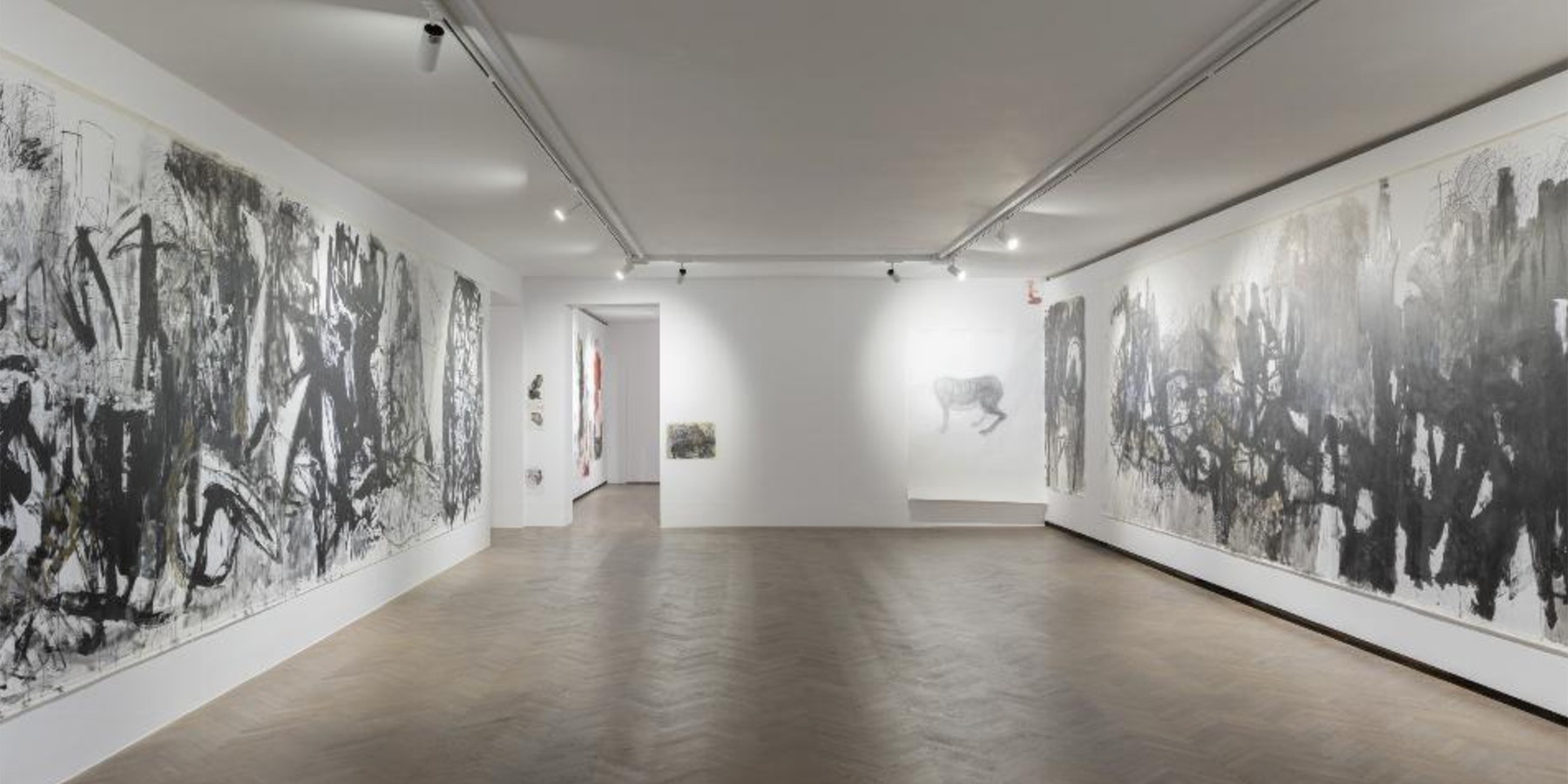
PLAN YOUR VISIT
Opening times:
Thuesday – Sunday
10:00-18:00
Last admission
to exhibition is at:
17.30
